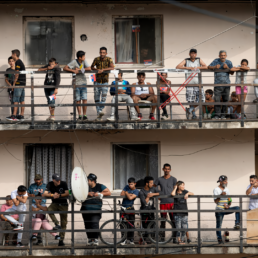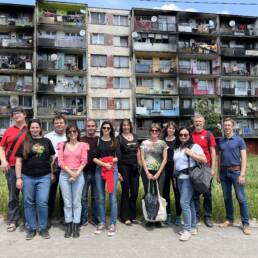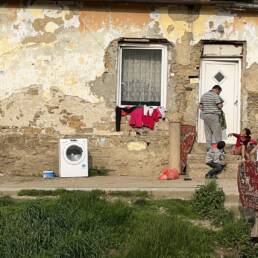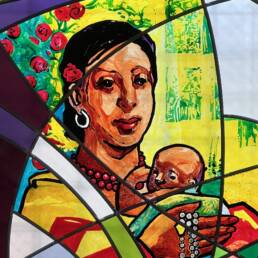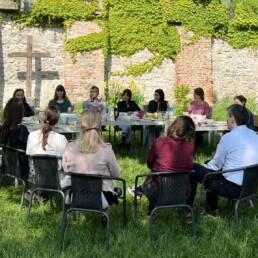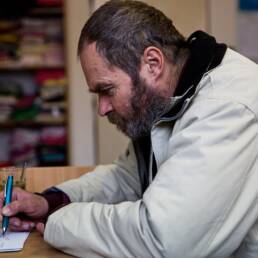Author
Maria Nyman
Secretary General
Caritas Europa
The latest addition to the Caritas CARES! poverty report series focuses on the difficulties the most deprived people face when trying to access services, such as housing, public employment and early childhood education and care services. It is based on the experiences of Caritas beneficiaries throughout Europe.
Our member organisations in 16 countries listened to their service users, the challenges that they face and the possible solutions that they see. Many of the beneficiaries told about the lack of accessible information on the existence of and eligibility for rights, services and benefits. They highlighted administrative hurdles and financial barriers as some of the main obstacles in accessing them.
Thanks to no threshold for accessing Caritas counselling services, our member organisations help their beneficiaries by providing information and support to access basic services. Caritas also creates and supports social economy projects and enterprises that create jobs adapted to those furthest away from the labour market. Furthermore, as a network, we contribute to bringing structural change by proposing changes to national and European policies and measures that increase the impact of service provision on reducing poverty and inequalities. In particular through the CARES! reports, Caritas connects national policy-making to the EU level in order to promote policy coherence and complementarity of measures and instruments.
This latest report ‘Fostering access to services to support people to move out of poverty’ is an example of the EU-wide cooperation that characterises Caritas’ work and that creates added value. Its recommendations aim at bringing the necessary change to eradicate poverty in a sustainable manner through initiatives that support the creation of quality jobs (recommendation 1), that safeguard access to social rights by using the European Pillar of Social Rights (EPSR) as a compass – and recognise the value of the European Social Charter – in order to promote upward social convergence (recommendation 4), that strengthen the social safety net by setting standards for minimum income, complementary to the provision of services (recommendation 7) and, last but not least, that ensure the participation of people experiencing poverty in the design, implementation, monitoring and evaluation of related policies and measures.
Caritas Europa is committed to supporting the implementation of the EPSR in all EU Member States at national, regional and local level. We hope that the Action Plan for the EPSR will boost the commitment of all governance levels. We also believe that the proposed Child Guarantee to invest in children and families who are most left behind can play a key role in ensuring access to services for the most deprived members of our societies. However, the key to success is the degree to which the participation of people experiencing poverty will be ensured in all steps of the implementation process.
Visit the CARES website to read more about the European report and to download it and the 16 national reports: https://caritascares.eu/.



